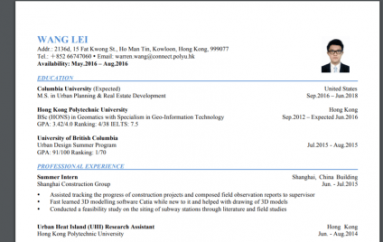
Middle East CIOs put ambitious IT projects on hold as cheap oil hurts business
Despite assertions by analysts that the Middle East and Africa (MEA) region will continue to make steady gains from greater IT investments, some CIOs in the region believe they are in for a rough 2016 as the low price of oil continues to dent business confidence.
While the global oil price – just below $50 per barrel at the time of writing – has recovered somewhat since the beginning of 2016, Gulf countries are still reeling from the effects of cheap oil, with both public and private entities doing what they can to curb costs. As a result, some organisations are putting off moonshot IT projects – that is, ambitious projects that may not return a profit for a long time – until the business environment becomes more stable.
“Companies are focusing more on how we can save more, rather than how we can be more advanced or more cutting-edge,” said Wissam Ismail, corporate director of IT at Al Noor Hospitals Group, the largest private healthcare company in Abu Dhabi.
Speaking to Computer Weekly, Ismail said that the oil price plunge had far-reaching effects across every industry – particularly in the United Arab Emirates (UAE) capital, which still relies a lot on oil-based revenues. “It affects everybody,” he said.
As a result, Ismail explained, it has become almost impossible to make a business case for any major IT investments. He said that, for his company, 2016 will be about assessing how to carry on with fewer resources, with only the most essential projects – such as a hospital openings – getting the buy-in from management.
“Ever since I’ve been IT, everyone has been saying we need to do more with less. It’s cuts, cuts, cuts. But normally it’s a soft cut – there’s an impression that we need to lower budgets but if there’s a real need then we’ll spend the money. But nowadays it’s more like there’s no money, and there are no people – even if you can make a business case for it,” added Ismail.
Read more about enterprise IT in the Middle East
- Middle East Airline is using a private cloud and open-source software to enable it to analyse social media and understand what consumers think about it.
- CIOs in the Middle East have the skills that could make them CEOs – and technology’s growing importance in the enterprise makes this increasingly likely.
- The United Arab Emirates (UAE) aims to become one of the most connected and smartcountries in the world within five years.
Middle East investment looks beyond oil
According to a Gartner report, Middle East spending on IT is expected to reach $212.9bn in 2016, up 3.7% from 2015, despite “economic uncertainty in world markets”. At the Gartner Symposium/ITxpo, held in Dubai in March 2016, Peter Sondergaard, senior vice-president and global head of research at Gartner, said the Middle East was already benefiting from investments beyond the oil industry, and that the long-term outlook was positive.
IDC, meanwhile, acknowledged the region’s challenging economic climate at its sixth annual Saudi Arabia CIO Summit, held earlier in May 2016. At the event, Abulaziz Al-Helayyil, IDC’s regional director for Saudi Arabia, Kuwait and Bahrain, and head of business development for national ICT development in the Gulf Cooperation Council (GCC), urged CIOs to use the downturn as an opportunity to align their IT operations with business strategies.
“The most pressing issue for CIOs at this juncture is to educate their board members on the benefits of aligning IT and business objectives whilst trying to balance cost pressures,” he said.
For CIOs such as Ismail, however, unlocking budgets for forward-thinking IT projects is unlikely to happen this year.
“I don’t see a lot of new projects happening in the normal way that has been happening here. There will be many key projects, but, at our level, it’s going to be just the minimum,” he said.
Source | ComputerWorld





